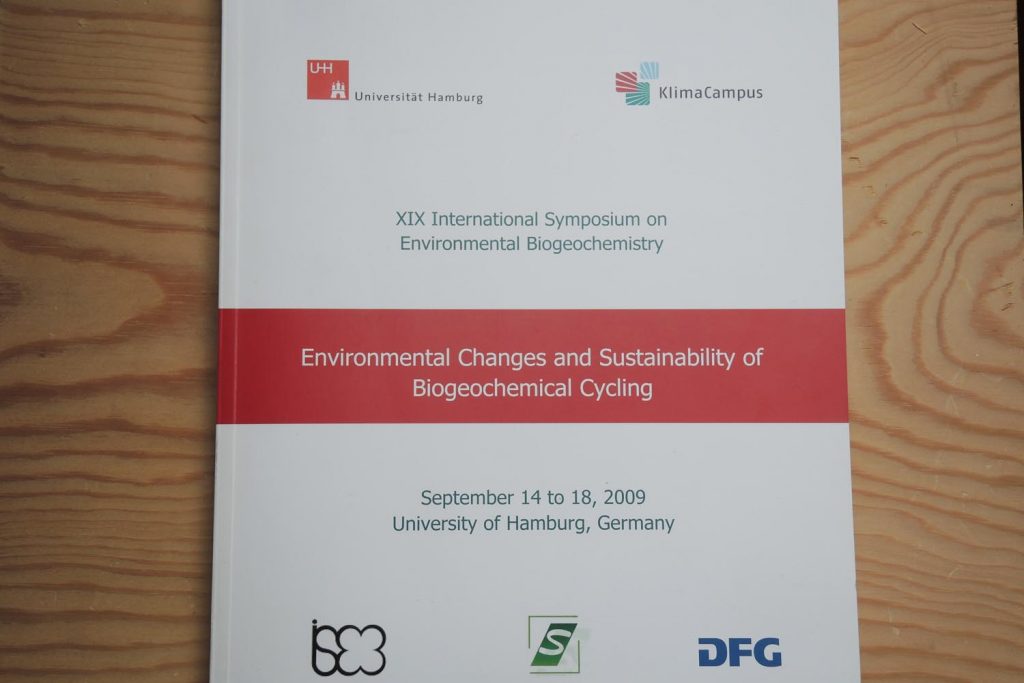Environmental biogeochemistry has developed as an important scientific field for decades and therefore a committee was established that organised the first International Symposium on Environmental Biogeochemistry (ISEB) in 1973 in Logan, Utah, U.S.A. The objective of the symposia were to provide a forum for the interactions of environmental chemists, geochemists and mineralogists, environmental microbiologists, ecologists, toxicologists, soil scientists and others to address the state-of-the art and identifS‘ gaps in knowledge on environmental biogeochemistry at different spatio-temporal scales, from the molecular level to the cycling of elements in large compartments.
The ISEB returns to Germany after a hiatus of 32 years. lt was at the ISEB III in Wolfenbüttel back in 1977 where scientists working in the field of environmental biogeochemical cycling biogeochemistry reconfirmed once more the efforts of this society. The past 18 meetings were a huge success.
The ISEB XIX in 2009 in Hamburg will bring together the scientific expertise on impact of climate change and human activities on biogeochemical cycling. Innovative resuits will be shared within this long-term interdisciplinary forum to improve knowledge and education in these fields considering the sustainable development. This Symposium will lead to the advancement of frontiers of knowledge on environmental biogeochemistry and to the subsequent development of innovative management strategies to sustain environmental quality and safety, and ecosystem health.
The following topics have been selected:
- Global changes and biogeochemical cycling
- Human impact on biogeochemical cycling
- Interactjons between environmental spheres, (Atmosphere, soil, aquatic systems and subsurface)
- Processes in terrestrial vs. aquatic ecosystems
- Soils as biogeochemical interface
- Soil-plant-microorganisms interactions
- Nutrient and energetic use efficiency
- Evaluating biogeochemical cycling
- Adjustment to extreme conditions
- Environmental biogeochemistry and economic and social assessments
Although there arc new and traditional competitive meetings in the field of environmental biogeochemistry organised around, we were very pleased to receive excellent submissions from worldwide and along the topics identified during the preparatory phase. Innovatively, we also include topics addressing economic and social issues which are crucial for working successfully on Environmental Changes and Sustainability of Biogeochemical Cycling of our Earth System.

